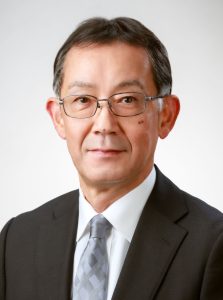
Message from the Dean

Tao, Ryutaro
Message
Established in 1923, Kyoto University’s Faculty of Agriculture stands as one of the oldest and largest faculties of its kind in Japan. The Graduate School of Agriculture, founded in 1953, underwent reorganization in 1998 with a focus on graduate studies. Consequently, faculty members are now affiliated with their respective graduate schools, concurrently instructing undergraduate students. In 2023, the Faculty of Agriculture celebrated its centennial anniversary since its establishment. Over a century since its foundation, Kyoto University’s Faculty/Graduate School of Agriculture has nurtured numerous talented individuals and spearheaded world-class research achievements across various fields, making significant contributions to the advancement of agricultural science.
Agricultural science encompasses a diverse array of academic disciplines. Accordingly, a fundamental understanding spanning fields like biology, chemistry, physics, earth sciences, mathematical sciences, and social sciences is essential. Kyoto University’s Faculty of Agriculture has six departments: Bioresource Science, Applied Life Sciences, Agricultural and Environmental Engineering, Food and Environmental Economics, Forest and Biomaterials Science, and Food Science and Biotechnology. Undergraduate students systematically study fundamental subjects related to these fields and receive specialized technical education varying across departments. Upon entering university, students participate in training programs involving lectures, experiments, practical training, and task-oriented research. Many choose to pursue graduate studies, where they can enhance their expertise through collaborating with peers and seniors, preparing themselves for active roles in their chosen sectors of society.
The Graduate School of Agriculture focuses on the keywords “Life, Food, and Environment” addressing complex and challenging issues facing humanity. These include the sustainable continuity of life across generations, ensuring the security and high quality of food, and addressing environmental degradation and the restoration of deteriorated environments. The Graduate School of Agriculture consists of seven divisions: Agronomy and Horticultural Science, Forest and Biomaterials Science, Applied Life Sciences, Applied Biosciences, Environmental Science and Technology, Natural Resource Economics, and Food Science and Biotechnology. It conducts a wide range of research and education, from molecular and cellular-level life activities to Earth’s ecosystems, material cycling systems, and even human activities in local communities. This encompasses a broad spectrum of studies aimed at improving the productivity of agriculture, forestry, fishery, and livestock industries, while preserving production environments. Cutting-edge research outcomes from the Graduate School of Agriculture are regularly featured on the university’s and the Graduate School and Faculty of Agriculture’s websites.
Advancements in agricultural science leading to increased food production have resulted in a swift expansion of the global population. Simultaneously, the upsurge in food consumption, driven by population explosion, has presented unprecedented challenges for agriculture, due to recent climate change, large-scale natural disasters, regional conflicts, the impact of pandemics, and significant shifts in the world economy. As a result, the current situation of food security is critical. In the challenging context of food production in Japan, establishing a cooperative framework based on favorable international relations is crucial.
The Graduate School of Agriculture has established academic exchange agreements with numerous universities worldwide, promoting international collaborative research. Simultaneously, it offers a program (Special Course in Agricultural Sciences) where degrees can be obtained solely in English, welcoming a substantial number of international students. Additionally, collaborative educational programs granting double degrees with universities in ASEAN countries and Taiwan are implemented. Various international student exchange programs are also conducted. Moreover, the Graduate School participates in the “Inter-Graduate School Program for Sustainable Development and Survivable Societies” which aims to cultivate talents crossing borders to address serious and diverse global challenges. It provides courses related to food security. From the academic year 2021, the Graduate School also participates in the Doctoral Program for World-leading Innovative & Smart Education “Kyoto University Platforms” aiming for new developments by integrating information science with multiple fields, including agriculture.
For humanity to thrive and continue a prosperous life, it is essential that high-quality food is abundantly supplied. However, it cannot be overlooked that advancements in production technology have placed significant burdens on the environment, resulting in constrains on food production due to issues like soil salinity and erosion. In recent years, the emission of greenhouse gases with agricultural production has also become a significant issue. Overcoming the challenges humanity faces is imperative for the continued enjoyment of prosperous life. The role that agricultural science must play is undeniably substantial. Through a diverse range of education and research, we aspire to contribute to the peaceful lives of people worldwide.
Profile
Education
B.S. March 1984. Faculty of Agriculture, Kyoto University
M.S., March 1986. Graduate School of Agriculture, Kyoto University
PhD. November 1992. Graduate School of Agriculture, Kyoto University
Professional career
Assistant Professor, December, 1988, Faculty of Agriculture, Kyoto University
Assistant Professor, April, 1997, Graduate School of Agriculture, Kyoto University
Associate Professor, July, 2000, Graduate School of Agriculture, Kyoto University
Professor, April 2016, Institute of Liberal Arts and Sciences
Professor, April 2018, Graduate School of Agriculture,Kyoto University
Overseas Research Career
JSPS Postdoctoral Fellow for study abroad (Visiting Scientist at the University of California at Davis (January 1993 to January 1995)
Research Field
Horticultural Science (Pomology)
Kyoto University Activity Database on Education and Research
https://kdb.iimc.kyoto-u.ac.jp/profile_private/en.5b75a1fb3c73ece6.html
Pomology Lab Website
http://www.pomology.kais.kyoto-u.ac.jp/en/index.php?content_id=1

